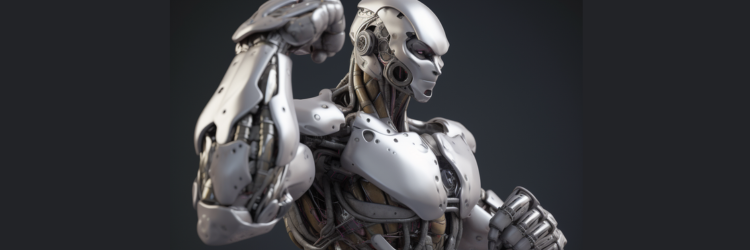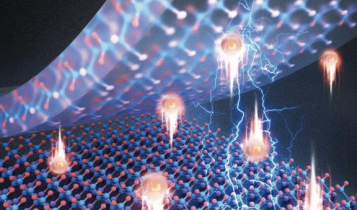Buff Robots?
A new ferroelectric polymer exceptionally good at converting electrical energy into mechanical strain holds promise as a high-performance motion controller or “actuator.” According to researchers led by Penn State, potential applications include medical devices, advanced robotics, and precision positioning systems.
Mechanical strain is an essential property of actuators, which are any material that will change or deform when an external force such as electrical energy is applied. Traditionally, the materials are rigid, but soft actuators such as ferroelectric polymers have higher flexibility and environmental adaptability.
The research demonstrated the potential of ferroelectric polymer nanocomposites to overcome the limitations of piezoelectric polymer composites, creating a way to develop soft actuators with enhanced strain performance and mechanical energy density. Robotics researchers are interested in these soft actuators due to their strength, power, and flexibility. Soft robotics, referred to as artificial muscle, can now carry a high load and considerable strain.
Ferroelectrics are a class of materials that demonstrate a spontaneous electric polarization when an external electric charge is applied and positive and negative charges in the materials head to different poles. Strain in these materials during the phase transition can change properties like their shape, making them useful as actuators.
This property of ferroelectric materials, along with a high level of flexibility, reduced cost compared to other ferroelectric materials, and low weight, holds great interest for researchers in the growing field of soft robotics, the design of robots with flexible parts, and electronics.


